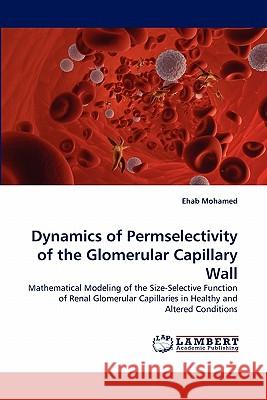Dynamics of Permselectivity of the Glomerular Capillary Wall » książka
Dynamics of Permselectivity of the Glomerular Capillary Wall
ISBN-13: 9783843365390 / Angielski / Miękka / 2010 / 108 str.
The structure, function, and composition of the basement membrane of glomerular capillaries of the mammalian kidney have been extensively studied, in light of the membrane's frequent involvement in renal diseases. A novel mathematical model, based on the Fiber Matrix Theory, was developed to describe the dynamics of permselectivity of the glomerular capillary barrier using mainly its hemodynamic and morphometric variables. The glomerular basement membrane was represented as a homogeneous 3D meshwork of fibers of uniform length (L ), radius (R ), and packing density (N v) and characterized by a local Darcy permeability. The model was appropriate for simulating in vivo fractional clearance data of neutral test macromolecules from an experimental rat model. We believe that the L and R best-fit numerical values, characterizing a glomerular basement membrane geometrical arrangement, may represent diagnostic measures for renal function in health and disease. That is, these parameters may signify new insights for the diagnosis of some human nephropathies and possibly may explain the beneficial effects and/or sites of action of some pharmacological modifiers.
The structure, function, and composition of the basement membrane of glomerular capillaries of the mammalian kidney have been extensively studied, in light of the membranes frequent involvement in renal diseases. A novel mathematical model, based on the Fiber Matrix Theory, was developed to describe the dynamics of permselectivity of the glomerular capillary barrier using mainly its hemodynamic and morphometric variables. The glomerular basement membrane was represented as a homogeneous 3D meshwork of fibers of uniform length (Lƒ), radius (Rƒ), and packing density (Nƒv) and characterized by a local Darcy permeability. The model was appropriate for simulating in vivo fractional clearance data of neutral test macromolecules from an experimental rat model. We believe that the Lƒ and Rƒ best-fit numerical values, characterizing a glomerular basement membrane geometrical arrangement, may represent diagnostic measures for renal function in health and disease. That is, these parameters may signify new insights for the diagnosis of some human nephropathies and possibly may explain the beneficial effects and/or sites of action of some pharmacological modifiers.











